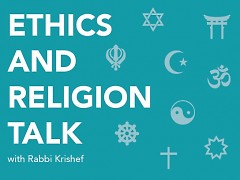Recently, Leslie Van Houten, the youngest of the Manson 'family,' was recommended for parole by a state panel that concluded that she has radically changed her life during the more than 40 years in prison for two brutal murders she helped commit 48 years ago and is no longer a threat to society. Governor Brown, whose agreement is needed, rejected such a recommendation last year, saying then that Van Houten ‘poses an unreasonable danger to society if released from prison.’ The families of Manson’s victims oppose the parole. What would your tradition say?”
The Rev. Sandra Nikkel, head pastor of Conklin Reformed Church, responds:
“Leslie Van Houten’s case raises the issues of justice, forgiveness, and mercy. Most people can identify with justice but not everyone identifies with forgiveness and mercy. These are concepts that can only be understood in light of a merciful God who ‘does not treat us as our sins deserve or repay us according to our iniquities.’ (Psalm 103:10) Most people’s view of sin is vertical. Up on the top are heinous sins, like murder and rape. On the bottom are ‘lesser’ sins, like lying, gossip, and cheating on a test. This is not the way God views sin. Although, different sins affect us in different ways, to God all sin is heinous. When we see things from his perspective we are less self-righteous and less fearful and we are able to receive the grace to forgive and even love our enemies. ‘But I tell you, love your enemies and pray for those who persecute you, that you may be children of your Father in heaven. He causes his sun to rise on the evil and the good, and sends rain on the righteous and the unrighteous. If you love those who love you, what reward will you get? Are not even the tax collectors doing that?’ (Matthew 5:44-46).”
Father Kevin Niehoff, O.P., a Dominican priest who serves as Adjutant Judicial Vicar, Diocese of Grand Rapids, responds:
“Because I have insufficient information I cannot in good conscience make a statement on the Manson murders. My comments will be limited to the criteria necessary to make such a decision. Much of what I reflect on is found in a statement made by the United States Bishops in 1981 and their ‘Statement on the Death Penalty’. ‘There are four criteria regarding the purpose of criminal punishment. They are: 1) protection (of society), 2) retribution, 3) rehabilitation, and 4) deterrence’ (ibid.). I choose not to answer number four because it is lengthy to discuss this criterion.
“Sometimes individuals need to be removed from society because they have demonstrated they are not able to live freely without acting immorally. There is nothing inappropriate about doing so because everyone in the society has both rights and obligations.
“One must never lose sight of the fact that the Roman Catholic Church is firmly committed to forgiveness through the sacrament of reconciliation, often referred to as confession. When one takes another’s life the victim(s) may never live again. Yet, retribution is possible through the perpetrator receiving society’s punishment and, hopefully, the reception of sacramental forgiveness for the crime/sin.
“In justice, EVERY sin is forgivable… and revenge is not justice. Optimistically, rehabilitation is possible so this important question deserves serious consideration.”
R. Scot Miller, who writes from an Anabaptist and Quaker Christian perspective, responds:
“Since prison sentences are rarely about rehabilitation or reconciliation, the very fact of incarceration as it stands violates Christian love and care ethics. The United States is primarily a tool of punishment and exploitation of those people we judge unworthy of our relationships and time. The fact of sin, and radical sin or evil, is a fact of the Christian Scriptures, as is an investment in those who are imprisoned and suffering. Grace, forgiveness, and mercy is part of our Christian ethic. According to the faithfulness of Jesus, after a long period of servitude and repentance which is obvious, Van Houten should be released.
“However, the nation state is never obligated to a Christian ethic, and may prioritize punishment over mercy in the interests of its constituents. As such, they are in control of the outcomes, and the church should carry on a ministry of mercy despite the states vote for or against. Whatever the motivator for incarceration amongst politicians, rulers, or non-believers, the biblical text is clear; Christians are to visit and share the gospel with the prisoner. The church should concern itself with loving those deemed unworthy of love, whether murderer or white collar thief, whether corrections officers or judges.
“While I would hope for the release of this woman as an act of mercy, the Christian ethic is more concerned with visiting prisoners and exhibiting love and grace to them as a means of repenting and changing their hearts. The church should also address injustices suffered by those incarcerated, making a change of heart an anticipated outcome rather than justice via punishment.”
This column answers questions of Ethics and Religion by submitting them to a multi-faith panel of spiritual leaders in the Grand Rapids area. We’d love to hear about the ordinary ethical questions that come up on the course of your day as well as any questions of religion that you’ve wondered about. Tell us how you resolved an ethical dilemma and see how members of the Ethics and Religion Talk panel would have handled the same situation. Please send your questions to [email protected].
The Rapidian, a program of the 501(c)3 nonprofit Community Media Center, relies on the community’s support to help cover the cost of training reporters and publishing content.
We need your help.
If each of our readers and content creators who values this community platform help support its creation and maintenance, The Rapidian can continue to educate and facilitate a conversation around issues for years to come.
Please support The Rapidian and make a contribution today.
